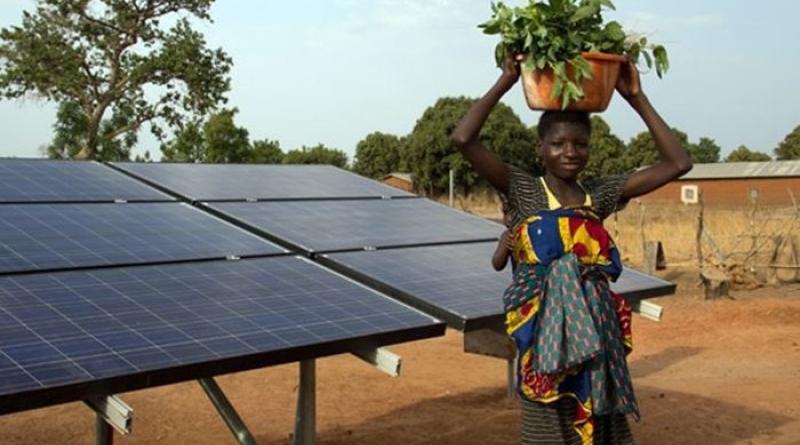How best to achieve a desirable transition to a low-carbon economy: the case of Sub-Saharan Africa.

Scientific support to climate action is not only about exploring capacity of “what”, but also about assessing desirability of “when”, “where”, and especially for “whom”.
The changes we have been witnessing in the climate system for decades, now rapidly culminating to a climate breakdown, constitute only one of a series of overlapping environmental crises.
Indeed, 2020 has been an unprecedented year for people and the planet. The Covid-19 pandemic has disrupted lives and economies worldwide. At the same time, the heating of our planet and climate disruption have continued apace. It has never been clearer that we need long-term, inclusive, decisive transitions to tackle the climate crisis and achieve sustainable development.
Climate action and sustainability commitments must, therefore, be at the forefront of recovery and reconstruction policy, and of the corresponding budgets, for the “Build Back Better” motto to have any substance.
In this direction, policy and business stakeholders alike are increasingly aware of the potential for behaviours and lifestyles to help or hinder the sustainability transitions, and of the need to understand them better before making respective investments. As such, scientific support to climate action should not only be about assessing the feasibility of low-carbon transition pathways in terms of exploring capacity of “what” (policies and technologies). It must also be about desirability, in terms of “when” (timings), “where” (contexts) and especially for “whom” (citizens and other stakeholders). Without the necessary behavioural and societal transformations, the world faces an inadequate response to the climate crisis challenge.
Such transformations cannot happen automatically. An undesired glimpse of rapid transformations in societal and individual behavioural change was experienced with the COVID-19 crisis. And, despite the trauma, lessons can be learnt. The most important lesson is that it requires time and resources to build spaces of trust and deliberation, as well as a “shared understanding” for collective learning that considers the real complexity of the local context and governance.
From a scientific point of view, theoretical modelling alone may provide a conditionally useful approximation to reality but cannot accurately capture it. The modelling community should rapidly accelerate its efforts to investigate alternative deliberation options: those that go beyond the “cost-effectiveness” mode, which prioritises understanding of how to achieve the warming cap at the lowest possible cost. Such options can include a diversity of scenarios that reflect a range of desirable transitions to achieve different decarbonisation goals, tailored to the actual local, national and/or regional priorities. This is especially so for Sub-Saharan Africa, where attaining electrification (SDG7) and infrastructure (SDG9) targets precedes and is intertwined with decarbonisation considerations.
As there is no “one model fits all” approach, scientists need to employ a diversity of modelling tools, placing the human factor at the core of all scientific processes, towards enhancing the robustness of model-driven policy prescriptions through participatory frameworks. Strengthening the ties between the research community and relevant stakeholder groups, including but not limited to policymakers, will not only root policy advice in practice and foster governance of climate policy; it may actually result in more effective and robust model-driven policy prescriptions in the first place.
Society can also gain a lot from such an agenda, by gaining access to how knowledge is produced and being part of the knowledge production, and by helping co-define the research and policy agenda, thereby gaining greater control over the decisions affecting their lives.
Truly integrative approaches, directly incorporating stakeholder preferences, as proposed by the PARIS REINFORCE European programme, are proposed to support the design of effective climate policy and sustainable transitions and, therefore, to strengthen the modelling–policymaking interface.
In this respect, and in collaboration with the Technical University of Mombasa, we are very happy to organise the first virtual, national stakeholder workshop in Mombasa, Kenya, aiming to mobilise knowledge embedded in individuals coming from governments, business, NGOs, academia, and the civil society; and to design well-informed and meaningful scientific activities in support of climate policymaking at the national and regional level.
authors:
Dr. Haris Doukas is an Associate Professor, at the National Technical University of Athens
Dr. Alexandros Nikas is a Senior Climate Policy Expert, at the National Technical University of Athens
Prof. Michael Saulo is the Registrar in charge of Partnership, Research and Innovation at Technical University of Mombasa. He is also a lecturer and researcher in renewable energy technologies.
Dr. Ioannis Tsipouridis is a Renewables Consultant Engineer and visiting Professor at the Technical University of Mombasa
Informed science for sustainable climate action in Kenya
A PARIS REINFORCE e-workshop, aimed at capturing the Kenyan national context and stakeholders’ perspective
October 28th 2020
Location: The virtual domain
Online registrations here
event organiser

20 October 2020
PARIS REINFORCE





